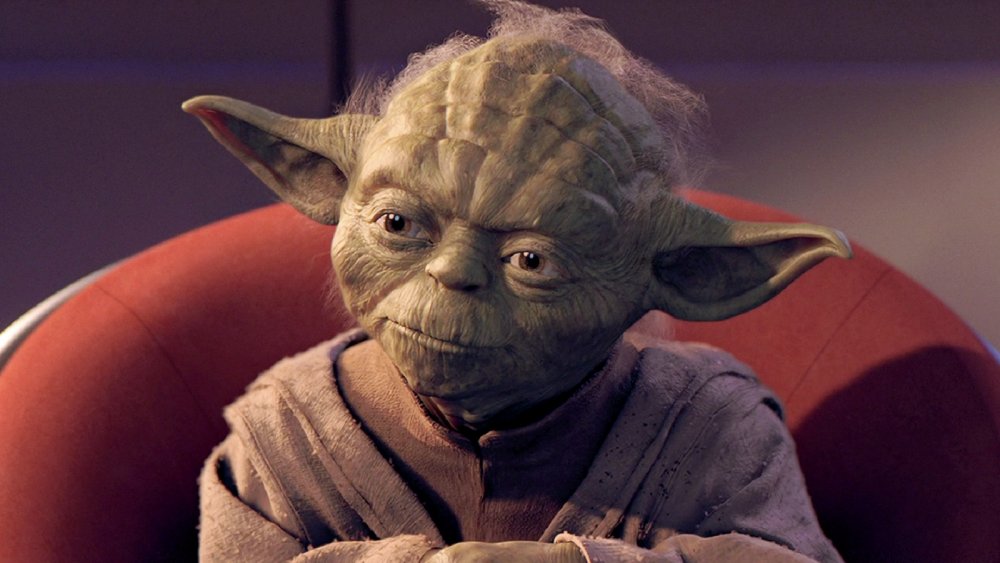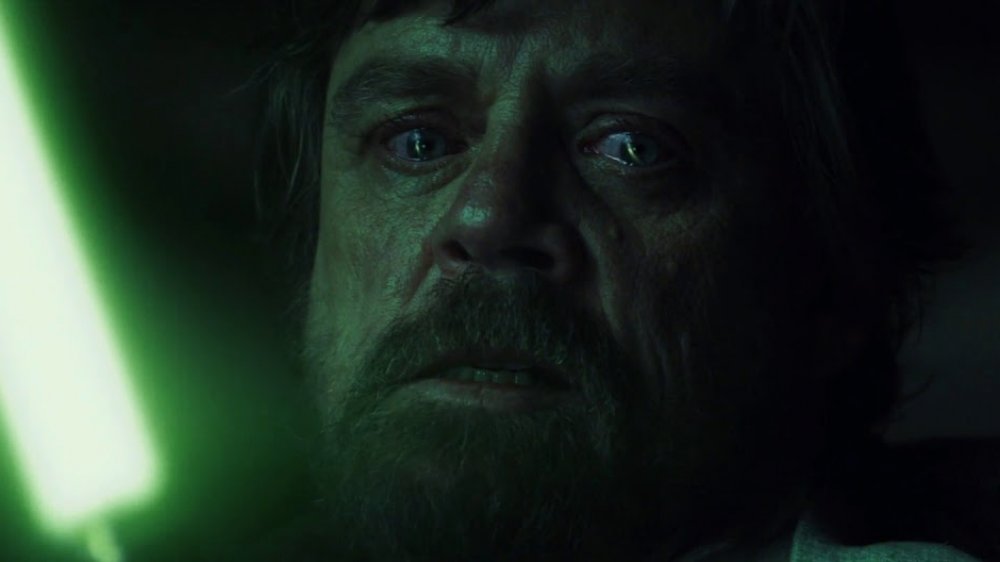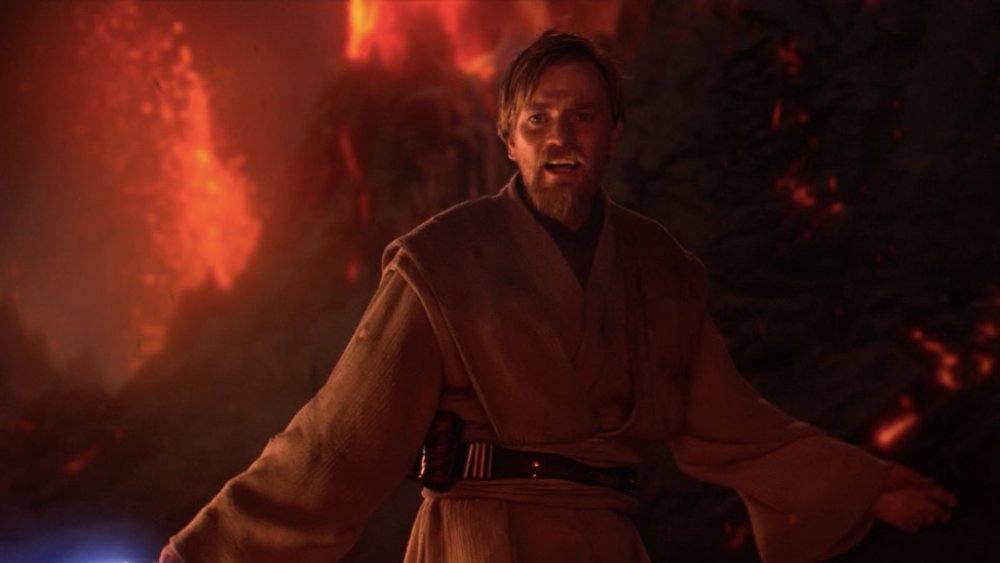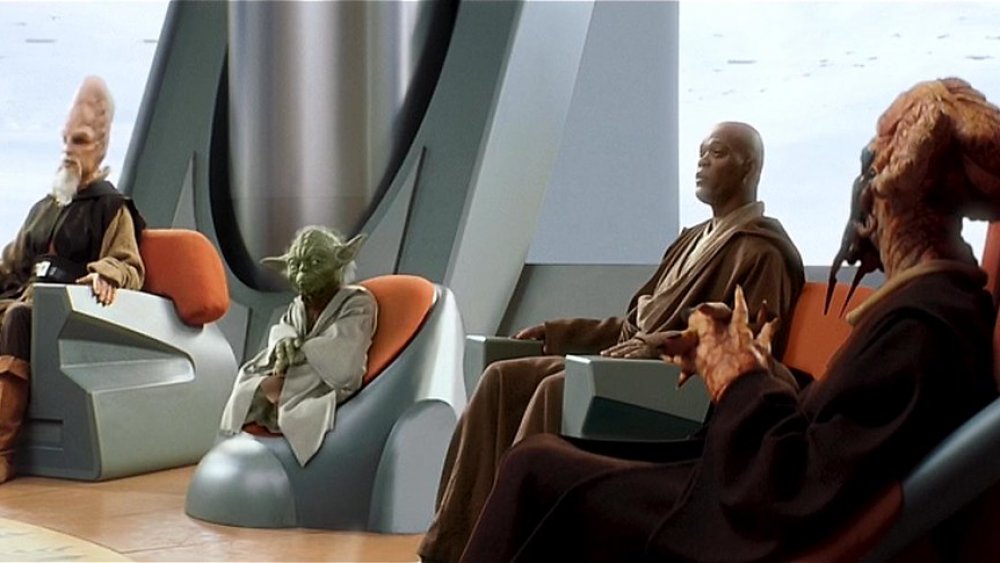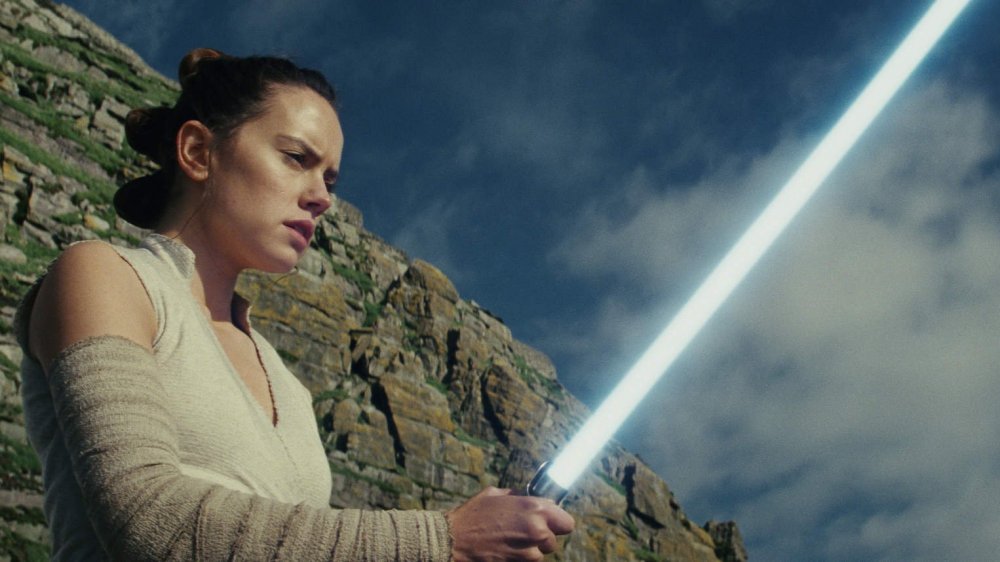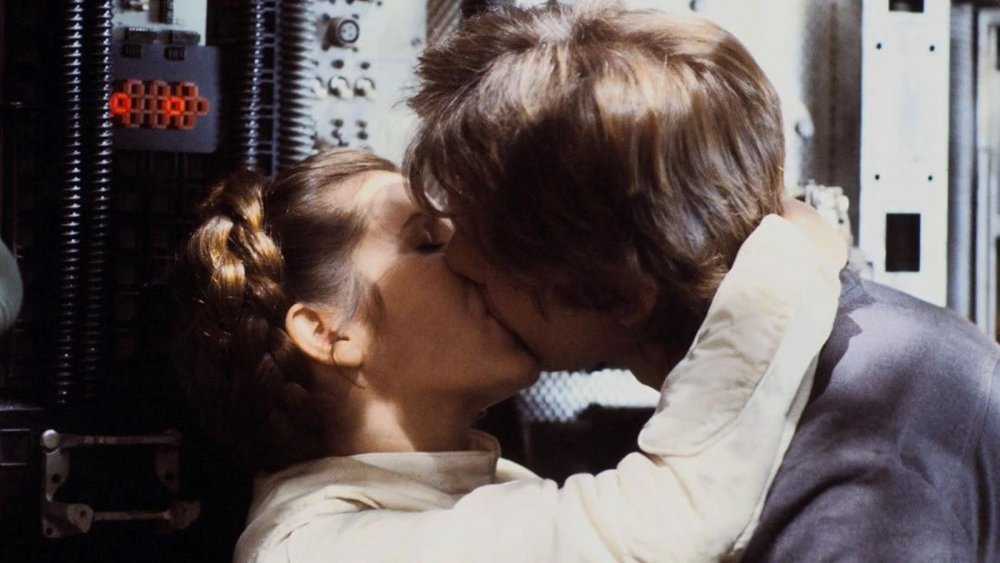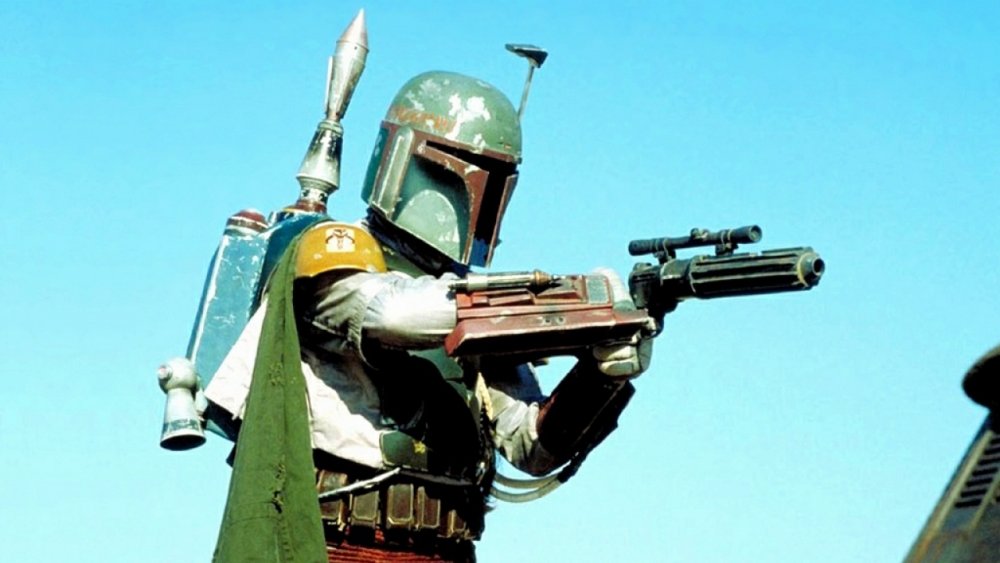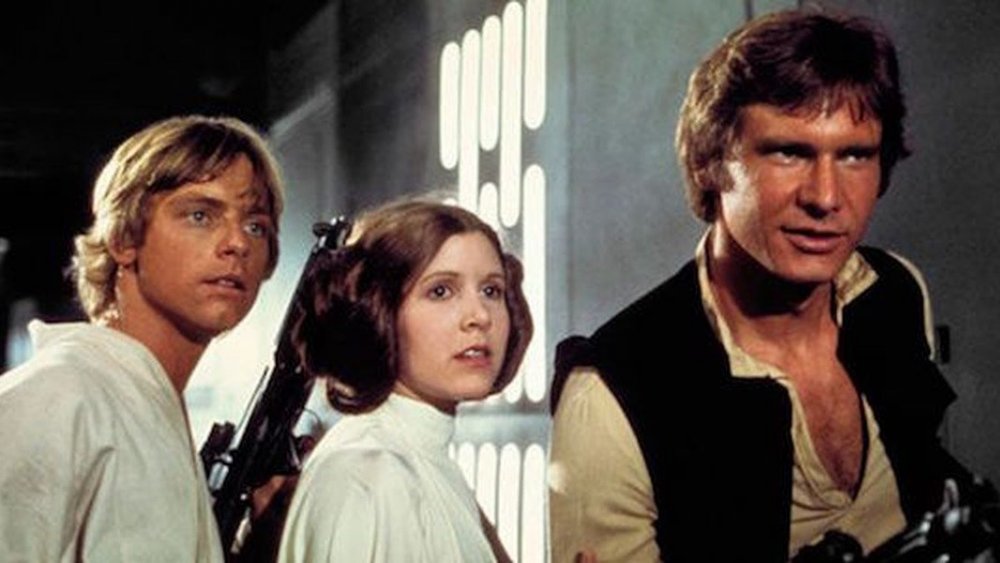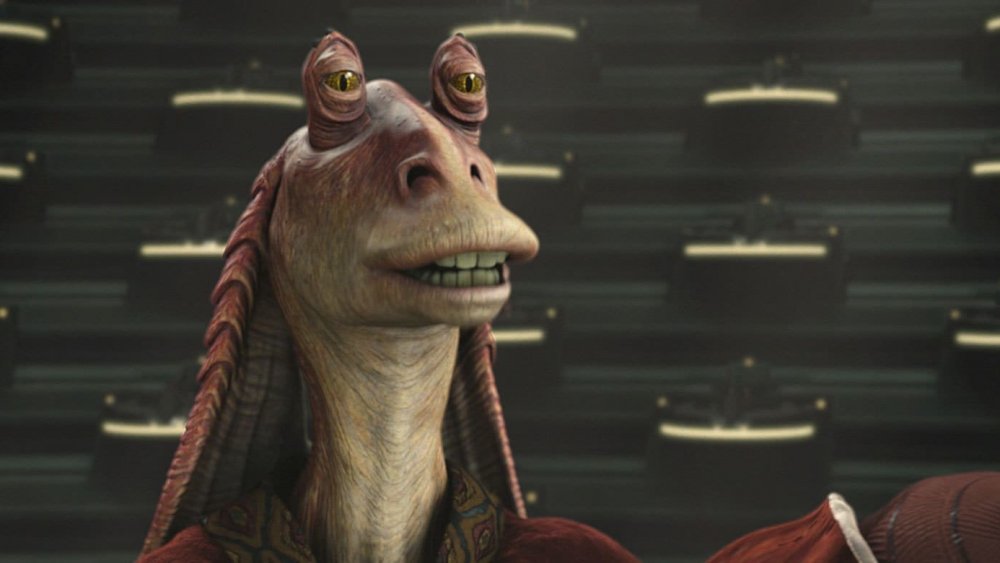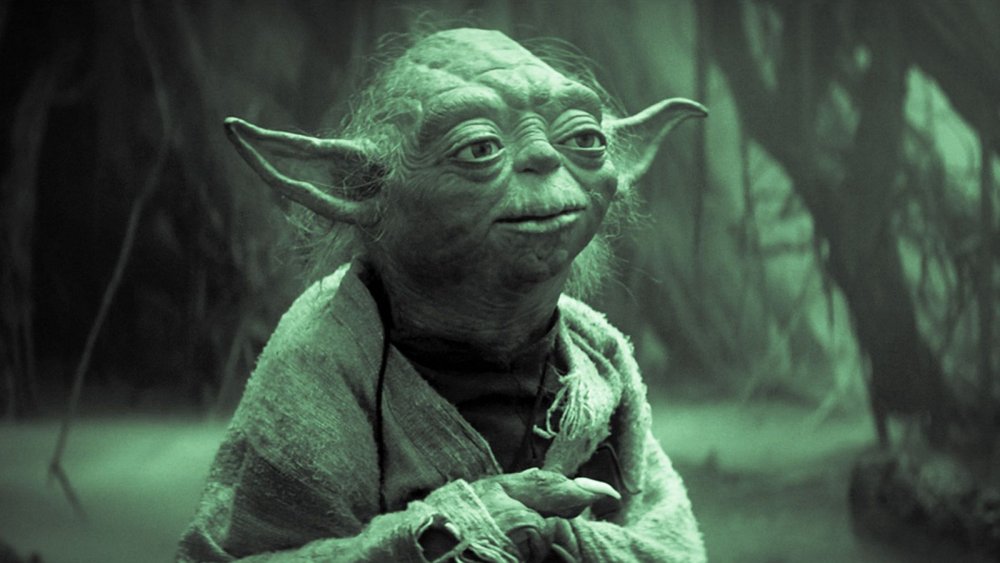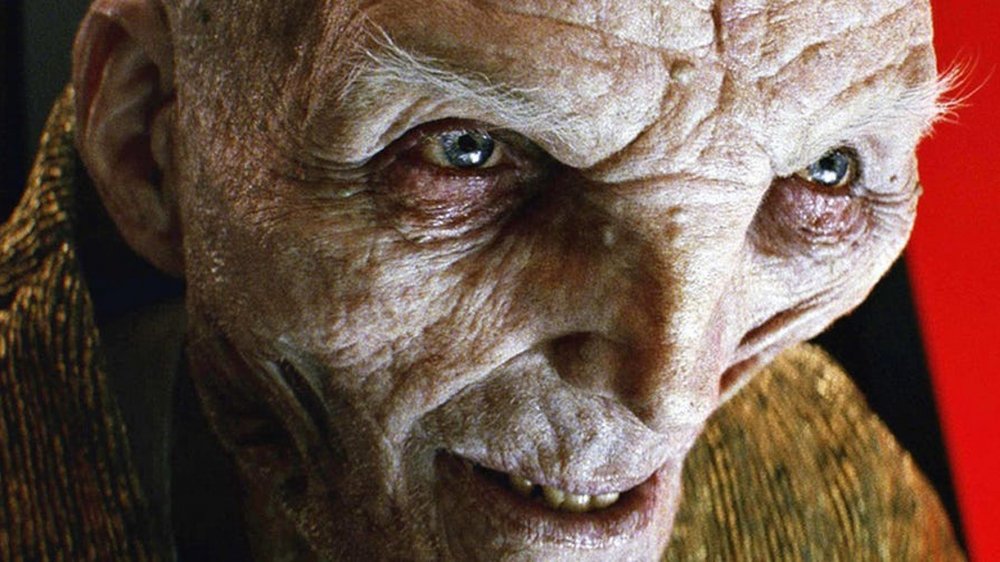Unpopular Opinions About Star Wars That Raise Good Points
Spanning over 40 years, Star Wars has amassed a fandom like no other, drawing in generations of fans who don Darth Vader masks and lightsabers at every given opportunity. And with a fan base so passionate, there's quite a bit of discourse among the fanbase, but almost everyone agrees about two things: Yoda is the best, and Jar Jar is the worst. But are they really?
Most people watched Star Wars for the first time as kids, and those early childhood memories aren't to be trifled with. Nostalgia fuels the Star Wars fandom, and it's easy to get swept up in the biases that develop at such a young age or even in the throes of passion when adults watch the series for the first time. Star Wars did what no other film franchise was doing in the '70s, sparking a cinematic revolution that still echoes in film today.
However, the series' strengths don't necessarily counteract the flaws, and we can all love the franchise while still acknowledging where the films and even our own biases fall short. These unpopular Star Wars opinions may cause an internet war, but they make good points.
Luke has always had a proclivity toward the Dark Side
One of the most controversial moments in The Last Jedi sees Luke Skywalker standing over his sleeping nephew, Ben Solo, with his lightsaber in attack mode, ready to snuff out his young life for fear of what he might become. But the point here is that he didn't. While that wasn't apparent to Ben, anyone watching knows that Luke was shutting down his brief impulse and lowering his saber. Yet his flicker of homicidal rage in Episode IX certainly isn't an isolated incident.
Although fans always want to view Luke in the purest light, the Jedi has continuously exhibited a spark for darkness. The entire original trilogy centers around Luke almost making the same bad decisions as his father but stopping himself and choosing the Light Side instead. Luke almost kills Vader multiple times and must resist his impulsive nature anytime he learns yet another uncomfortable truth. The Jedi's struggles with his Dark Side impulses, and his ultimate rejection of them, are what make him a compelling character.
Plus, his cynicism in the film is totally justifiable. After all, Luke has been through hell and back to save the galaxy, only to watch it fall (once again) to totalitarianism. No wonder he's been chilling and isolating himself on on Ahch-To for years, pushing away who he is. Anyone would be jaded and angry.
Obi-Wan wasn't a great mentor
The Jedi mentor code of conduct must have a training manual on how how to be vague as heck because the Jedi have that trait in spades. As much as fans tend to romanticize Obi-Wan, he wasn't a stellar mentor to Luke or Anakin. As per usual, he hid critical information from both of them. And in Anakin's case, it led to his shift to the Dark Side. Had Luke not grown up with his aunt and uncle's love and support, he may have suffered the same fate when he finally found out that Vader was daddy dearest and not a brave Rebellion pilot.
Going back to Anakin, Obi-Wan constantly gaslit his original Padawan and didn't take him seriously, which is the only reason he sought out Palpatine in the first place. Granted, Anakin didn't exactly come to him for help when Padmé got pregnant or when he feared for her life. Still, Obi-Wan didn't give Anakin many reasons to trust him with that sensitive information when Obi-Wan continually put the council ahead of his mentee's best interests. His refusal to take Anakin seriously, even though they were essentially adopted brothers, jumpstarted Anakin's descent when he turned to Palpatine for validation. If Obi-Wan had given him the respect he craved, he wouldn't have needed Palpatine's approval so desperately, and the Emperor wouldn't have been so successful taking over the entire Republic.
The Jedi caused their own downfall
Obi-Wan tells Anakin that "only a Sith deal in absolutes" in Episode III, but the Jedi have proven time and time again that their teachings are just as rigid and toxic as those of the Sith. Leaders in the ancient religion make frequent blanket statements about love and fear, teaching their people to bury their feelings instead of showing them how to deal with their emotions safely.
The Jedi's refusal to adapt to modern times causes an endless amount of its members to break ranks and turn Dark Side, driving away their people with a stilted way of life. Most Jedi who turn have felt spurned by the Jedi lifestyle and hierarchy. With an unfulfilling and prejudiced mentorship system, the Sith easily manipulate vulnerable Jedi, using validation and false promises to reel them in.
If the Jedi embraced love, they could use the most powerful weapon there is. There's a reason passionate people like Luke, Leia, Rey, and Anakin are so powerful. The former learned how to channel love and passion properly away from the toxic training of the Jedi, whereas Anakin endured the brunt of it, and look where that got him. Plus, fear isn't a bad thing when you learn how to properly work through it instead of letting it take over by ignoring it. Love, when acted on appropriately, doesn't need to turn into a twisted obsession. If Anakin had an example of a healthy relationship to mirror his own after, maybe things would've ended differently.
The Last Jedi was the best sequel
Fans complained about The Force Awakens being too similar to A New Hope, and then even more people accused The Last Jedi of being too different ... but that's exactly why it's the best sequel in the third trilogy. Before J.J. Abrams retconned Rey's Episode IX origins with a hastily thrown together Palpatine connection, director Rian Johnson brought back the idea that you don't have to come from a famous line to be powerful. After all, not everything needs to be connected to the original trilogy to be impactful. Diverting fan expectations by making Rey a "nobody" proved that anyone can make a difference, a concept that people can really use these days.
And sure, fans weren't pleased with the over-the-top showmanship of Force Leia, but Leia being arguably even more potent than Luke shows that she doesn't need the Force to change the world. Leia's passions have always revolved around leading and government, just like her adoptive parents and Padmé. For a series so hyper-focused on Jedi, it's refreshing to see everyone's favorite space princess become a general, doing her own thing and doing it better than anyone else ever could.
Plus, Star Wars is often too on-the-nose, but Episode IX hones in on issues like animal cruelty, and it provides realistic insights into heroes' lives after the credits roll, giving Star Wars fans a fresh and long overdue perspective.
The way Han pursued Leia was kind of creepy
Fans regard Leia and Han as one of the most iconic couples in cinematic history, but if they look closely, their origins are less romantic and more along the lines of "this dude needs a workshop on the word 'no.'" The beginning of their relationship is littered with Leia trying to tell Han no while he continuously touches her and makes advances. While it was definitely a different time when the series first released in the '70s, looking at the films with modern-day lenses makes their first interactions cringe at best.
Between her telling him to get off of her multiple times, ignoring Leia when she literally says the word "stop," and advancing on her in secluded areas, Han really needed to reevaluate his actions to see how creepy he was being. The whole pigtail pulling schtick is not cute, and neither is calling the girl you like infantilizing names when you're nearing 30 (and she's around 19). That hits a bit too close to home. Despite his interest being reciprocated or not, Leia had the right to say no and have Han respect her choice, especially given how young she was. No matter how mature she seems and regardless of her high political position, she was young and impressionable, and Han took advantage.
Boba Fett is the most overhyped character in the franchise
Star Wars fans love Boba Fett, but despite the infatuation, the bounty hunter hasn't done a single striking thing during his time screen time. Sure, he has a cool getup, but what does he actually bring to the table as a character in general, much less a villain? Boba has four speaking lines in the entire original series, and none are anything to write home about. He responds to Vaders command with, "As you wish." Then he whines about the carbonite plan for Han on two separate occasions. His final line is the lame command, "Put Captain Solo in the cargo hold."
It would be one thing if his superb fighting skills made up for his lack of personality or speaking lines, but he mostly just skulks around and misses the shots he does take. The supposed best bounty hunter in the galaxy gets pushed into the Sarlacc pit by a blinded Han Solo while wearing a jet pack and screaming bloody murder. He doesn't even try to fly away, and he's too busy shrieking for a cool last line. And this is the guy everyone's obsessed with?
His most intriguing moment comes during Attack of the Clones when fans discover he provided the blueprint for the Stormtroopers as Jango Fett's unimpressive clone. He's just as bad at fighting (and existing) as the Stormtroopers ... he just has a cooler outfit.
The original Star Wars films weren't perfect
Nostalgia essentially rules society, determining what shows or movies get rebooted in Hollywood, what fashion trends come back, and tinting the past in rose-colored glasses when people reminisce about fond memories from childhood. But if you talk to a fan who's loved Star Wars since their early days as opposed to someone who got into the series as an adult, most of the time, the latter will have some harsher criticisms and hard truths that the original series isn't perfect.
As much as everyone wants to believe that the OG Star Wars films are flawless, most complaints about the prequels and sequels are also present in the originals — plot twists, unnecessary plot excursions, a predictable story, and surface-level characterization. We romanticize the core three, but the number of plot holes and confusing moments in the series are staggering. Lucas may have claimed to have come up with the Vader and super twins storylines ahead of the series, but the facts don't add up, and neither do the plots themselves. Those late choices led to a slew of confusing story arcs that contradict what came before.
Additionally, Lucas' wife, Marcia, is responsible for editing the original series, but they divorced by the time the prequels rolled around, making all of the issues that were prominent in the first trilogy that much more pronounced because she wasn't there to fix them. The originals provided a blueprint for modern films in the '70s, but they definitely weren't perfect — and that's okay.
Jar Jar is one of the best examples of character growth in Star Wars
Jar Jar Binks starts off as a blundering goof and then manages to snag a position as Gungan army general to lead his people in the Trade Federation battle, ultimately making his way to the top of the Senate. Is he the most annoying Star Wars character in the entire franchise? Probably. But that doesn't make him a bad character, just an obnoxious on. His somewhat offensive cadence aside, Jar Jar has shown one of the most significant cases of character development the series has ever seen, right up there with Kylo Ren's return to the Light Side in The Rise of Skywalker.
The wayward Gungan manages to earn the trust and respect of the most discerning member of the Republic — Padme. The former queen entrusts him as her stand-in for Naboo when she's dealing with her surprise pregnancy. Granted, he ultimately horribly screws up and hands power over to Palpatine, but even though he's a little too trusting, his storyline is far more compelling and rich than people give him credit for.
Yoda is a tyrant
While his power certainly isn't debatable, Yoda never should've had a reigning seat on the Jedi council. His explicit biases and inability to accept alternative opinions eventually lead to the downfall of the Republic. For someone so wise and powerful, he can't seem to sense Palpatine, and he might as well be the opposite side of the same coin. As much as Yoda seems to detest dictatorship, he rules the Jedi Council like one, and only Anakin is willing to stand up to him. (And that turned out so well.)
Yoda hides important truths that ultimately lead to people getting hurt, and no one ever seems to call him out on it. He continually dismisses his subjects that don't fall in line with his idea of how the Jedi should operate, and Anakin probably isn't the first Jedi to get tired of his mind games. Yoda policing his constituents' every move has likely caused more than one Jedi to seek out the Sith.
Mace Windu should've headed the Council as he represents the acceptance of change and alternate thinking that the Jedi ranks desperately need. He considers other people's ideas and is willing to do what he needs to in order to save his people. In other words, he's a true soldier. Mace is the only Jedi in the prequels who takes Anakin seriously and listens to his concerns. Had Mace been heading up the Jedi Council instead of Yoda, Palpatine may never have taken over.
Snoke didn't need a backstory
Most fans hated that Snoke was snuffed out so early in the sequels, but not only did his death scene feature one of the most epic battles in the series, it was refreshing to have him revealed as a random baddie pulling Kylo Ren's strings. There wasn't some huge reveal that Snoke was really Darth Plagueis the Wise's long-lost grandchild. Snoke was just a random Dark Side jerk, Kylo killed him, and his death opened the doors for Ren to forge his own path. Snoke's death allowed Kylo to call his own shots, which ultimately led to him finding his way back to the Light Side.
Not everything needs to tie into the originals perfectly, and Snoke's death (and his nobody status) worked to move the story along. Now, J.J. Abrams spent a lot of time dismantling everything that Rian Johnson had set up. Still, Snoke is yet another example of Johnson making refreshing and unexpected choices that fans generally didn't see coming from a mile away. Few people can argue that Snoke's death scene wasn't one of the best (and most visually appealing) lightsaber battles in the series, and he wasn't significant enough as a character to warrant more screen time taken away from the villains and characters who actually mattered.
